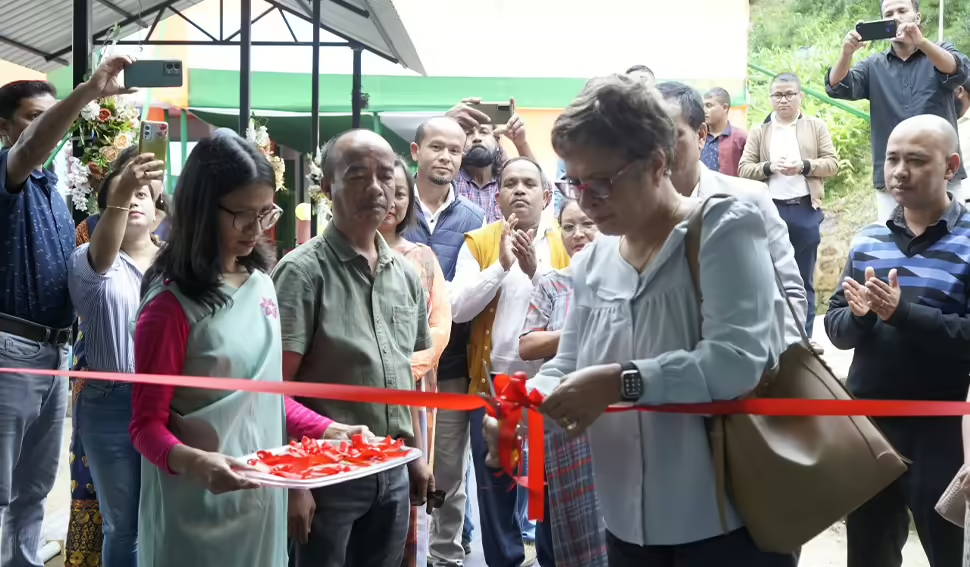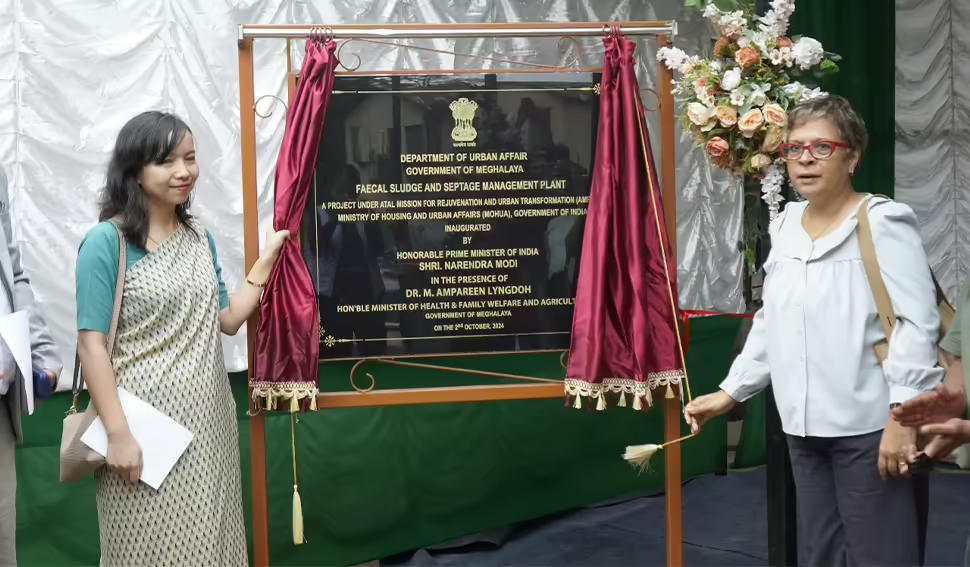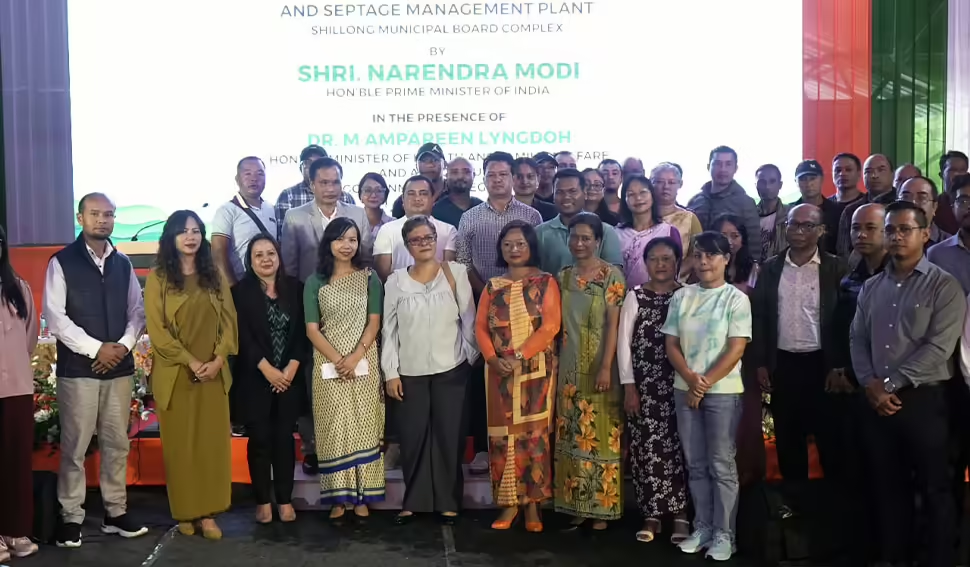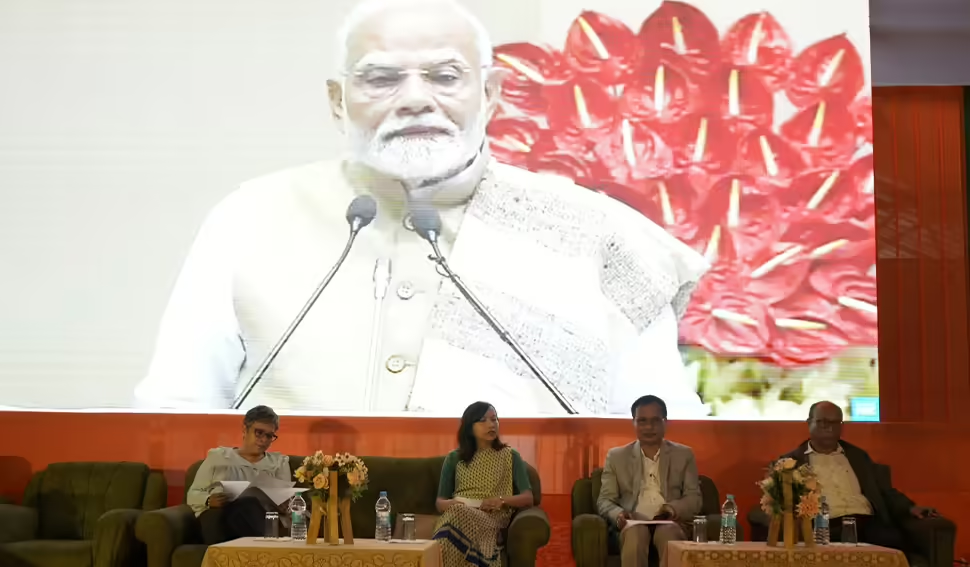Shillong’s new Rs 52 crore Faecal Sludge Treatment Plant inaugurated by PM Modi

Prime Minister Narendra Modi virtually inaugurated the Faecal Sludge and Septage Treatment Plant in Shillong on October 2, with Dr. M. Ampareen Lyngdoh, Minister of Health & Family Welfare & Agriculture, cutting the ribbon on his behalf. The event was part of Meghalaya’s Swachh Bharat Diwas (Clean India Day) celebrations, during which the Prime Minister dedicated several projects to the nation, including this plant, established under the Atal Mission for Rejuvenation and Urban Transformation (AMRUT).
Dr. Lyngdoh highlighted that Shillong generates around 32.37 million litres of sewage daily, including black water from septic tanks and grey water from kitchens and bathrooms, much of which flows into storm drains. Most of the city’s wastewater is partially treated in septic tanks, with sludge collected by SMB cesspool tankers and processed at the Marten plant, which has a capacity of 115 kilolitres per day.
She also spoke about the government’s efforts to rejuvenate rivers under the Swachh Bharat Mission, launched on October 2, 2014, by Prime Minister Modi. The mission’s anniversary is celebrated as Swachh Bharat Diwas, honouring Mahatma Gandhi’s vision of cleanliness and sanitation.
The new treatment plant, costing Rs 52.08 crores, including four on-site sewage treatment plants at Wahumkhrah and Umshyrpi outfalls, will treat faecal sludge and septage from on-site sanitation systems. It is expected to serve 1 lakh households in Shillong.
Dr. Lyngdoh also announced plans to set up decentralized sewage treatment plants in areas unreachable by cesspool vehicles. Additionally, 24 cesspool tankers have been procured to ensure timely sludge collection and prevent septic tanks from overflowing.

She praised local communities and traditional institutions for their leadership in waste management and emphasized the need for cesspool vehicles of various sizes to access all households.
Isawanda Laloo, IAS, Director of Urban Affairs, spoke of the progress towards a cleaner and healthier city, noting that Shillong handles 171 metric tons of solid waste daily. She stressed the importance of treating and reusing water to conserve resources and acknowledged the efforts of municipal workers and sanitation staff in maintaining cleanliness. Laloo encouraged continued community efforts to protect the environment for future generations.
The plant, serving the Shillong Urban Agglomeration, has a capacity to treat 350 kilolitres of wastewater and septage daily. The treated water can be safely discharged or recycled within the plant.
During the event, 18 Safai Mitras from the Shillong Municipal Board were honored with Janata Personal Accident Policies worth Rs 2 lakh each, provided by the National Insurance Company Ltd.
Attendees included P. K. Boro, CEO of SMB and Secretary of the Meghalaya Urban Development Authority, Biangmon Lato, Joint Director of Urban Affairs, along with other officials from the Urban Affairs Department, Shillong Municipal Board, and the Rangbah Shnong of Laitumkhrah.



Leave a Reply